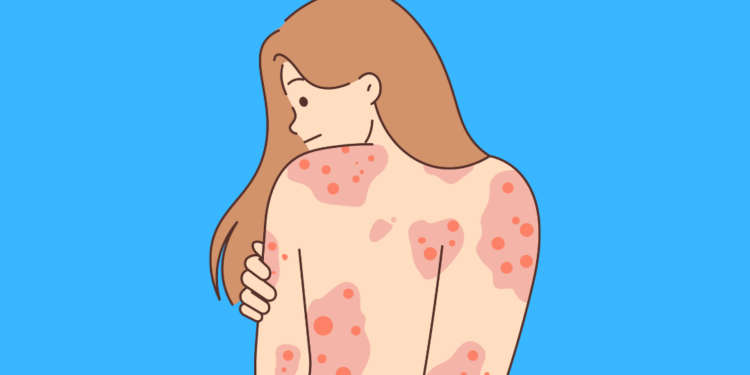Lupus is an autoimmune condition that causes the immune system to fight the organs and tissues in the body. It’s more common in women, especially during their childbearing years, and can affect different parts of the body like the skin and lungs etc. While doctors aren’t exactly sure what causes lupus, they think it’s a mix of genetics, hormones, and environmental factors. But this condition is tricky. What makes lupus especially tricky is how unpredictable it is, with symptoms flaring up and then calming down. In this article, we’re looking at the challenges and treatment of lupus.

Living with Lupus
Living with lupus isn’t easy because of the way it messes with the body. It can take a serious toll on a person’s physical health, making them feel tired, in pain, and having a series of unpredictable flare-ups. Lupus also has effects on a person’s emotions. The stress of managing this chronic illness can be frustrating, and sometimes even depressing. The unpredictability of lupus is already a puzzling circumstance, making it tough for a person to plan their life.
Are There Any Coping Strategies For Lupus?
Yes, there are a few things that can make living with lupus a bit easier. No matter what you’re going through, always try to remind yourself that there’s someone out there with similar conditions as yourself.
Thanks to technology, you can get to connect with such people through different social media platforms, where they have an online community of people dealing with different illnesses like lupus. In communities like this, people would share their various experiences dealing with this illness, and the several things they did to handle it.
Another thing you need to do is to reduce or manage stress, through activities such as meditation, yoga and exercise. These activities help reduce inflammation.
How Do You Treat Lupus?
When treating lupus, the main goal is to manage any of its symptoms and only stop the organs from getting damaged. The treatment for lupus is aimed at controlling flare-ups, and reducing inflammation.
One big part of lupus treatment is medications. There are two main types of medication prescribed for lupus, which are corticosteroids and immunosuppressants.
Corticosteroids help reduce inflammation and calm down symptoms when things flare up. While immunosuppressants calm down the immune system so it stops attacking the body’s own tissues. However, you can try to eat right, exercise regularly, and manage your stress levels in order to reduce inflammation.
Bottom Line
Not only is lupus challenging but it is also unpredictable. It affects different parts of the body, especially for women during their childbearing years. It can be really hard to deal with, both physically and emotionally, but there are ways to make it easier. But you can take control of this illness by staying informed about it, and being proactive about treatment.

















